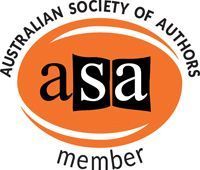This past few weeks has seen more destruction at ABC-Radio National with the axing — or ‘decommissioning’ in spin terms — of many beloved programs, almost all music and features, and all avenues to hear original creative works by Australian writers and poets and audio-artists. This was my letter to the ABC Advisory Council, and also sent to the Board and to ABC management. Please if you love RN do send them your feedback on this radical shift in policy about what ABC-RN is to be in the future. It seems current management wants it to be merely a series of talk programs and to move it all to digital podcasting and get rid of the broadcast station as soon as possible. The steady hacking away over the years at the amazingly unique and rich ABC Radio National culture – considered by many in Australia and internationally as a national treasure – is being speeded up, and in a few years it will likely be unrecognisable. Email addresses at the end to send your feedback. Thank you.
*
To the ABC Advisory Council:
I am writing concerning the latest round of program cuts and changes to Radio National — in particular to arts, features and music — and the cumulative effect of this erosion of the ABC’s charter over the past four years and more.
I wish to register my passionate support for RN’s invaluable role in producing and broadcasting around the nation audio arts, original creative writing (memoir, poetry, creative essays, drama, stories), features and audio documentaries in such an effective an economical way, so that people regardless of where they live, their disability or ability status, and their economic means are able to access first rate Australian art and writing from their homes and cars and workplaces.
*Radio National as an egalitarian and effective distribution mechanism for the arts and complex ideas:
Please see the article I wrote about this for The Canberra Times and Sydney Morning Herald in 2012 which is still (perhaps even more) relevant now. This article has been circulating on FB this week, and many sharing it have commented that it sums up the experience of RN in their lives and why they are appalled at losing so much arts, music and features programming, and what a waste of public resources the removal of this means of distribution entails.
We are living in a time in which the arts and writing in Australia is gaining increasing international attention. To disregard and under-utilise — to starve off — this avenue for getting such work to audiences seems a great misuse of public funds.
As I write in this article:
As a percentage of the population – or compared with the ratings of [other commercial radio programs] – the ratings for any one episode of the Radio National arts and features programs look ridiculously low.
But just because both forms of entertainment come out of the same little box in your house or car, is it valid to compare them?
What if instead of comparing RN arts programs to other radio ratings, we compared them to other arts delivery methods, and to arts audience numbers in general?
An audience of 40,000 for a theatre performance, for instance, in a bricks-and-mortar space would be considered extraordinary, especially if it toured around the country to provide equity of access to all Australians, and even went overseas. But imagine the cost of such a show – and hence the price of the tickets – and the government subsidies required to keep entry remotely affordable.
On another level, imagine the cost of sending in actors to read to people who are housebound, or sit beside people in their cars, so they can all share together in the one story over a number of weeks and feel inspired and connected?
Or the cost of organising writers, artists, sound engineers and performers from right across the nation to produce and deliver innovative sound and word performances each week – to be, effectively, in the same room, engaging in a ”conversation” with each other’s work?
* The importance of the linear Broadcast model in addition to and as a support to podcasting
Regarding the proposed shift away from the linear broadcast model and towards podcasts: I think it is fantastic that RN programs are now podcast around the world – this is a great innovation – but the internet environment is so incredibly saturated and competitive, that to squander and not appreciate the real edge that the foundation of the broadcast station gives to the podcast archive and library seems utter madness.
I understand that change will come, but in 2016 the linear broadcast model is still an essential part of what RN does. A large proportion of the audience still listen to RN in their cars and on their radios.
Furthermore the linear broadcast model is an important part of what is so unique and valuable about RN as a curated branded space. In its linear form it is an important and trusted brand. It caters for a range of tastes within that branded model, delighting and surprising with the unexpected, enabling a public listening experience (large numbers of people listening to the same thing at the same time), and countering the echo-chamber effect that is of increasing concern when so many people only listen to or download individual programs or broadcasters that they can rely on to totally agree with their own views.
This is why we go to art galleries and cinemas and football stadiums rather than just watch things at home on our computers. Radio National is a public space in this respect. It not only provides a unique mixed experience of curated material from a range of spheres, it also creates a vital base audience to support the additional podcasting structure, and to foster an engaged national conversation.
*Build out from and make use of the base audience, don’t alienate them
It is the loyal base audience that tracks down a program and shares the links on social media with their friends – thus bringing in new listeners. These are the ones who have the radio tuned to RN and thus introduce their children and visitors to its little-known delights. These are the teachers who bring in podcasts to use in classrooms.
In my view, you increase an audience by valuing and building out from the base audience, not by disregarding and violating its loyalty and trust until they go elsewhere.
That is, you increase an audience not by trying to court new kinds of listeners at the expense of the old ones, but by promoting the treasure that you already have and encouraging listeners to share and promote what they love. (That is, involve those who are loyal, don’t trash them.)
*RN is a too-well-kept secret that needs more promotion, not a radical programming switch
Until the ABC values RN and cross-promotes it on their other platforms — ABC TV, the ABC news station, JJJ, Dig, etc — maybe even indulges in a bit of advertising or publicity in other news medium (making use of the Age and SMH while they still exist, for instance), or on billboards as other high-rating radio stations do — I really cannot see how you can decide that the current mix of programs does not suit a wider audience. I would argue that most people in Australia simply do not know that RN exists, what it offers, and even how to find it on their dial or internet.
*The RN audience is an influential one and everyone benefits from the trickle-down effect
Furthermore, the current loyal RN audience is an influential one. Even when the numbers are smaller than commercial stations, the people who listen are often cultural producers or influencers of one kind or another. So what they experience on RN inspires, informs and nourishes their own writing, art, documentary making, community involvement, teaching, and so on. It has a trickle down effect so everyone is the richer.
To dumb-down RN content in order to chase higher ratings and clicks is to utterly miss the point of having such a treasure-house of ideas and challenges.
*Arts and writing on RN is cost-effective and important. The steady erosion of this role for RN over the past five years is alarming.
As a writer, I have been inspired and nourished by RN programs for many years, as well as have been able to write and have work produced so that it has been able to reach a national and international audience way beyond what is otherwise possible as a writer of poetry and predominantly short forms (short fiction, memoir, creative non-fiction etc).
For instance, even when my fiction was published by Random House, it reached a larger audience when parts of it was adapted for RN.
In more recent times, for example, my poem ‘Forgetting’, about my mother’s increasing dementia and our changing relationship, was initially published in my book, Vagabondage, published by UWAPublishing. The readership via this book and public readings and library copies is probably way under 2000 people. That’s the nature of poetry distribution in Australia, and this is actually extremely good exposure for a book of this kind. I then was able to adapt it into a six minute audio piece for Earshot, and not only this way could I reach an audience in excess of 60,000 people (and many more with a Sunday repeat and another repeat on Mother’s day this year), through this it came to the attention of the popular website Timbre and was selected as a pick of the week, giving it another boost and an international audience. (And at the same time driving more traffic back to the RN website. It was the most-downloaded podcast for Earshot that month. So much for the general view that people don’t like poetry. I would say they simply don’t have enough access to it.)
Over the past twenty years I have had numerous pieces produced, commissioned, adapted and broadcast on RN. These have been on a range of programs, including programs that are not specifically arts related but had a budget for commissioning interesting work on a theme. Over that 20 years I have seen the possibilities for creating work for radio steadily diminish. Until now, the only remaining program that may take this kind of work is Earshot. And it has been reduced to one hour of programming per week in which it has to try to cater for the range of talent available in Australia these days, in all forms of arts and writing, and the audiences’ hunger for this kind of work.
One hour of programming per week is not enough to fulfil the charter of the ABC to support and nourish the creative arts.
*The RN brand is about cultural complexity and variation and a space where arts and music are integral to ideas
It won’t be sufficient to keep those interested in a broad range of cultural and intellectual ideas and forms listening to the station on a regular basis if you also start messing with the brand by having too many politically-aligned presenters given significant programming time. If RN just becomes predominantly people spouting their opinions, I think you will find a large proportion of us will go elsewhere. (And once you drive people to go digital there is an enormous sea of competition out there.)
In the same way as many people only buy the weekend papers for the arts and reviews content, you may find that many listeners start to lose their brand loyalty when they find that there are only a few hours now of this kind of programming in the whole week.
These are some of the culturally significant programs that utilised and nourished writers and readers that have been axed over the years I’ve been writing — Pocketdocs, Soundproof, Poetica, Airplay, The Night Air, The Listening Room, Soundstage, The Book Reading, Creative Instincts, Sunday Story, The Comfort Zone, Hindsight, The Coming out Show/Women Out Loud.
Two half-hour programs per week instead of dozens of hours of programming in the past. How does this satisfy the ABC Charter?
How does this make good use of the wealth of talent and experience in the writing community within Australia, the interest in our writers and artists internationally, and the passionate and knowledgable staff at the ABC?
To give just one more (and more specific) example of what a really good program can mean, I was reading something on FB about the Coming Out Show yesterday. I have strong memories of this program which ran for several decades and built up a loyal and engaged audience. I can remember lying in the backyard on a sunny afternoon in 1979, listening to a women’s history episode and just weeping. I also got my first intro to French Feminist theory via an episode in 1981. I heard the HIV-AIDs epidemic discussed from a range of angles on that program in a way it wasn’t addressed anywhere else. And so on, many times over the years. This is what good national public radio can be.
Over the years, features have been cut to the bone. In the next round of cuts they may become a thing of the past. As members of the ABC Advisory Council, I beseech you that you do not allow this to happen on your watch.
Thank you for reading this.
Sincerely,
Beth Spencer
*
If you would like to send feedback on this issue to the ABC, here are some email addresses. Also please send to or phone your local MPs, Malcolm Turnbull, Bill Shorten and Richard di Natale. And your favourite programs and presenters on RN would also love to hear from you too. They so need our support right now. Thank you!
The ABC Board — board@your.abc.net.au
The ABC Advisory Council – abcac@your.abc.net.au
Michael Mason – mason.michael@abc.net.au – the head of ABC Radio
Judith Whelan – whelan.judith@abc.net.au – Head of spoken word ABC Radio
Michelle Guthrie – guthrie.michelle@abc.net.au – head of the ABC
Deb Leavitt – leavitt.dedorah@abc.net.au – head of RN
Sophie Townsend – townsend.sophie@abc.net.au – Editor Digital and creative audio
Jim Spigelman – spigelman.james@abc.net.au – head of the ABC board
Check out Radio Nationals programs and podcasts, and livestream RN,
or find your frequency to tune in on your radio here.
Click here to read and/or share my full article “Why our airwaves create a valuable public space: Radio National’s unique ability to foster the arts needs protecting” from 2012 from The Canberra Times and SMH or read it on my blog here.

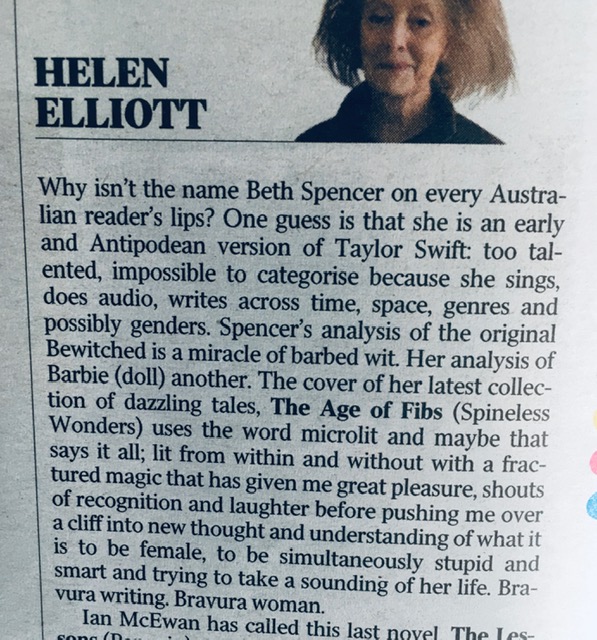
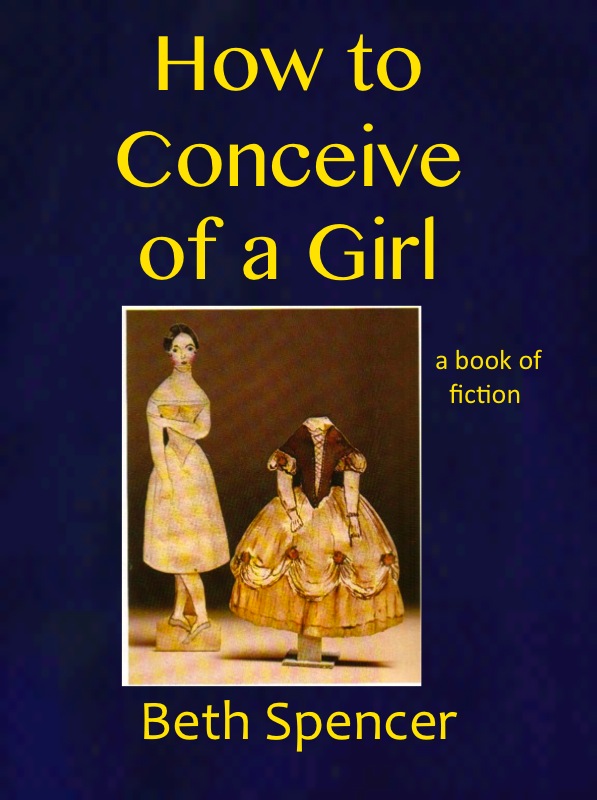
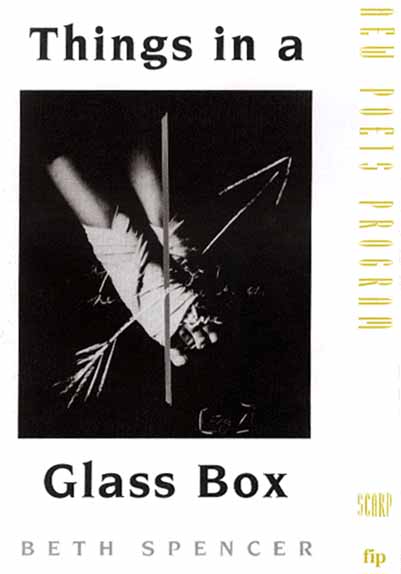
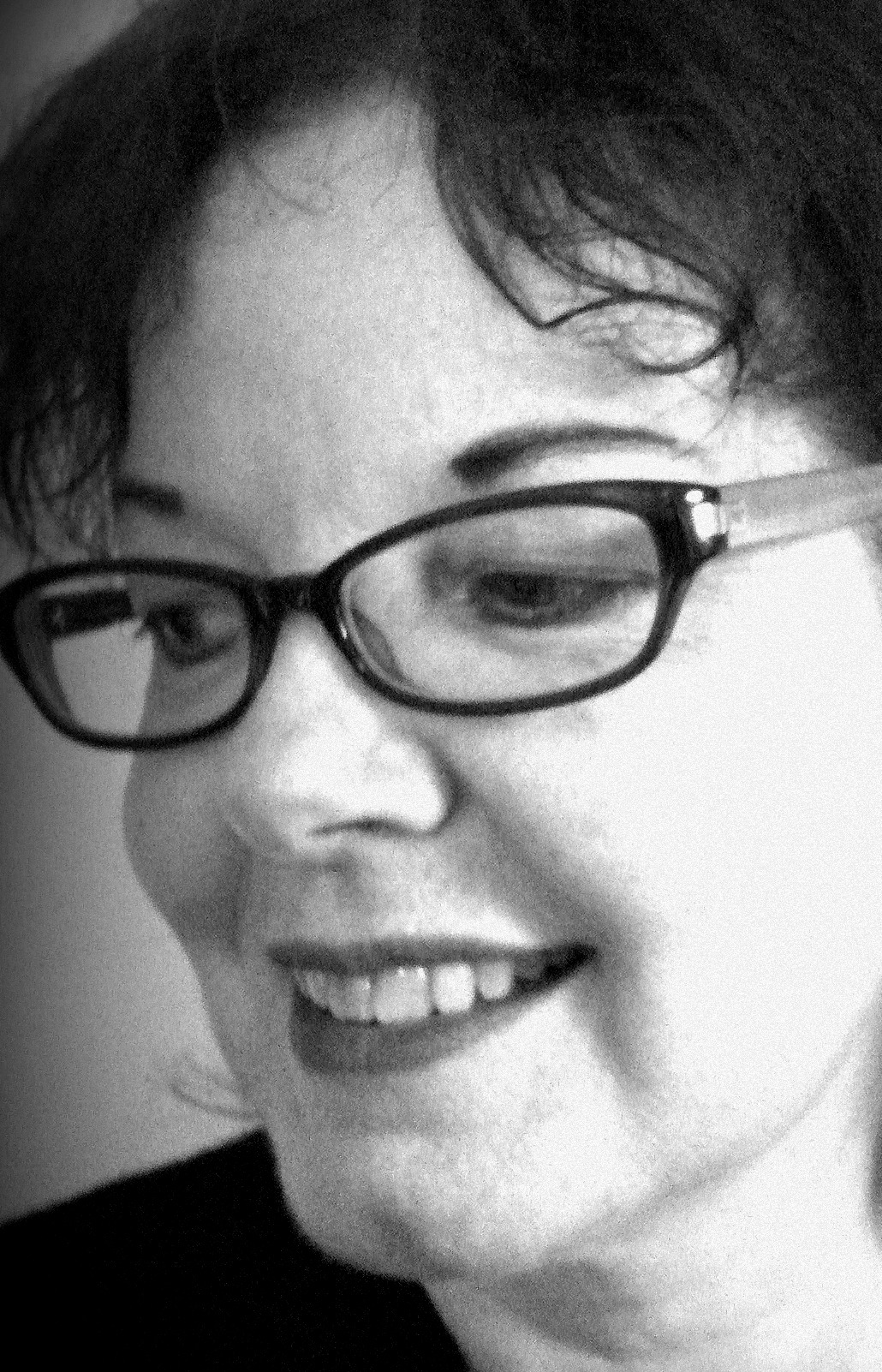
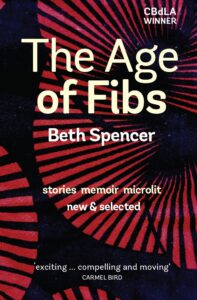
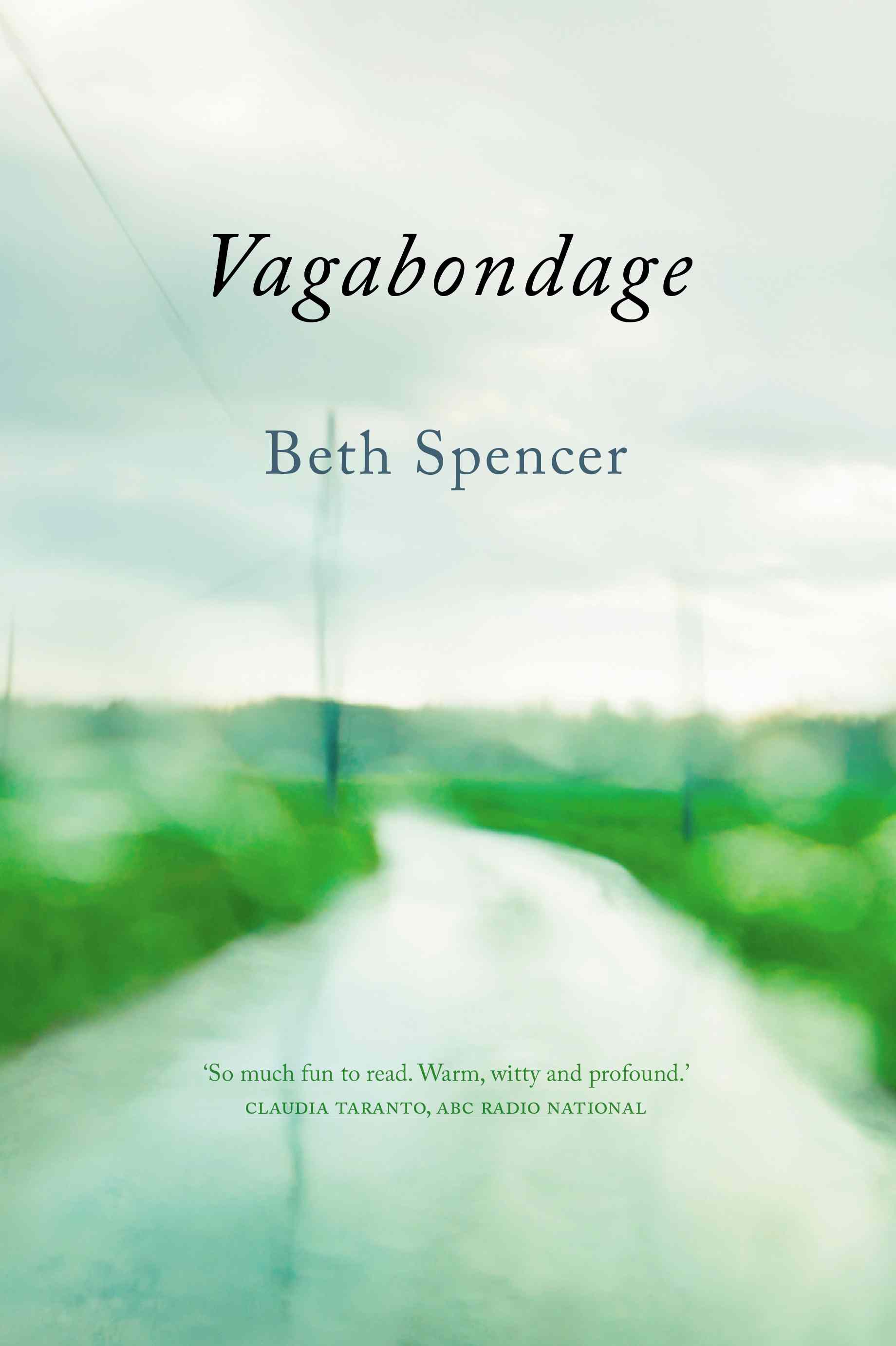
![[The Party of Life, cover]](http://bethspencer.com/blog/wp-content/uploads/2012/11/sm-edged-front-cover-Party-of-life-227x300.jpg)

